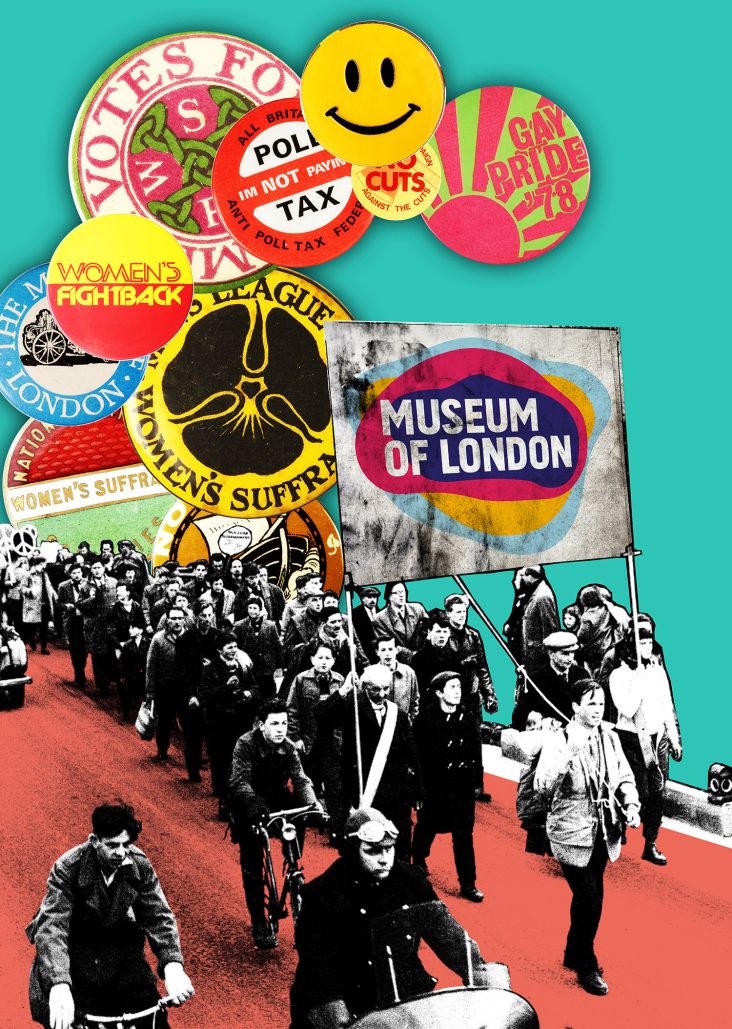Forest: Yan Wang Preston's photographs of transplanted trees in fast-changing China
Surrounded by city high-rises and paved concrete streets, a group of young trees burgeon straight upward toward the sky. Elsewhere, a mammoth three-hundred-year-old tree stands with branches supported in front of the skeleton of a hotel complex under construction. The tree trunk is enveloped in plastic, which is wrapped around the wood like a bandage protecting an injured body part.
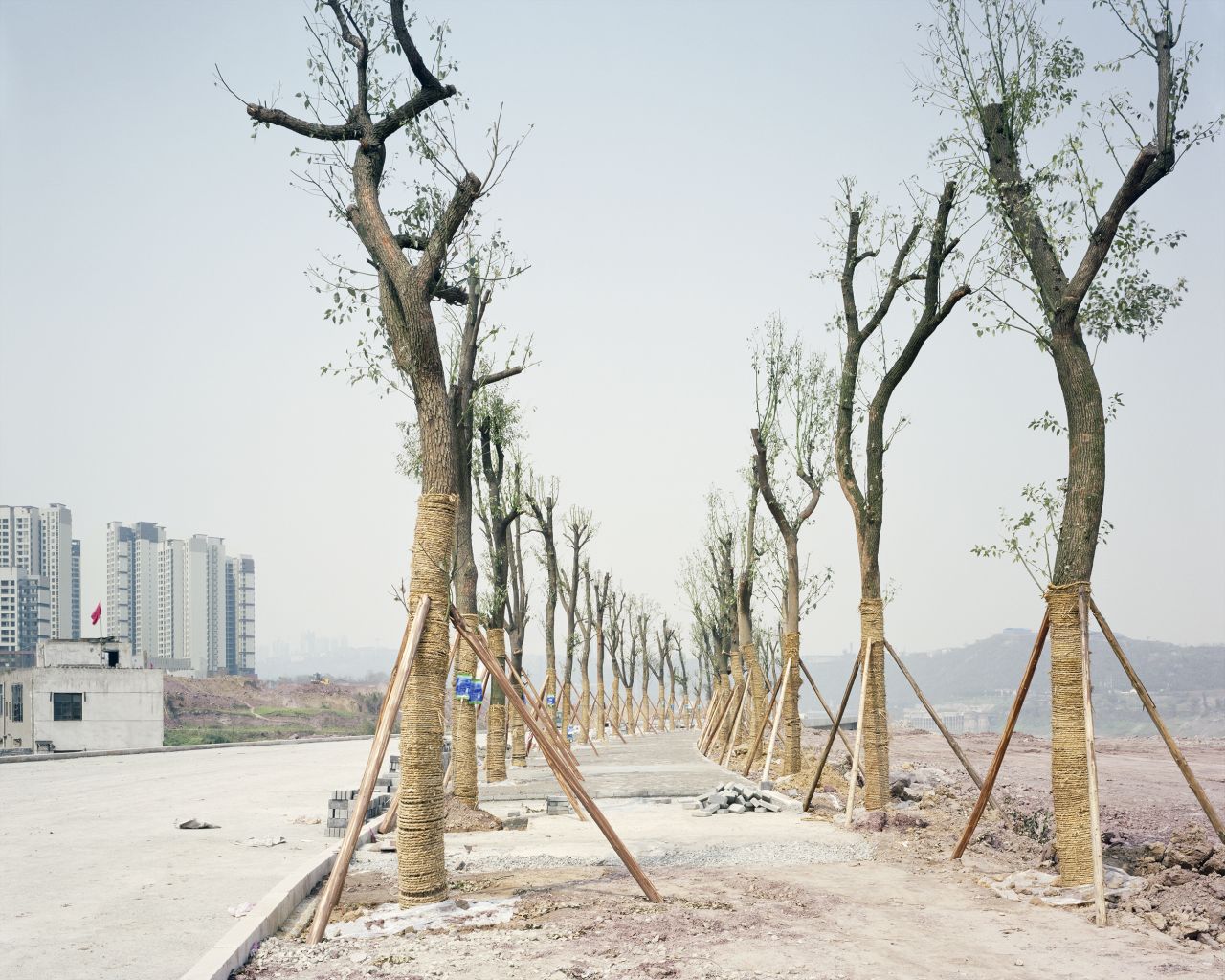
Yangtze Riverside Road, Chongqing, 2011 © Yan Wang Preston
Both observations can be found in the photographs by the artist Yan Wang Preston, who has spent several years documenting how individual trees in rural regions of China are being replanted to make way for urban developments. She discovered a flourishing trade in transplanting nature and confronted the question of to what extent the uprooting and replanting of trees reflect a general image of society.
"The tree can be seen as a metaphor for migration," says the curator Zelda Cheatle in the foreword to the book. "Chongqing, where Preston has photographed over many years, has a population of nearly 30 million and continues to grow exponentially. This expanding metropolis echoes the trend of global migration, where millions of rural workers move to cities.
"It is estimated that half of the world’s new cities in 2030 have not yet been built. In this migratory process, trees and people experience the same trauma of leaving a familiar land and a familiar life more in tune with nature."
Yan Wang Preston, who has a doctorate in photography from the University of Plymouth, has spent many years capturing the transformation of the environment and nature in her native China with great sensitivity. Part of her series is now available to enjoy in a new book, Forest, which is published by Hatje Cantz and priced at €50.
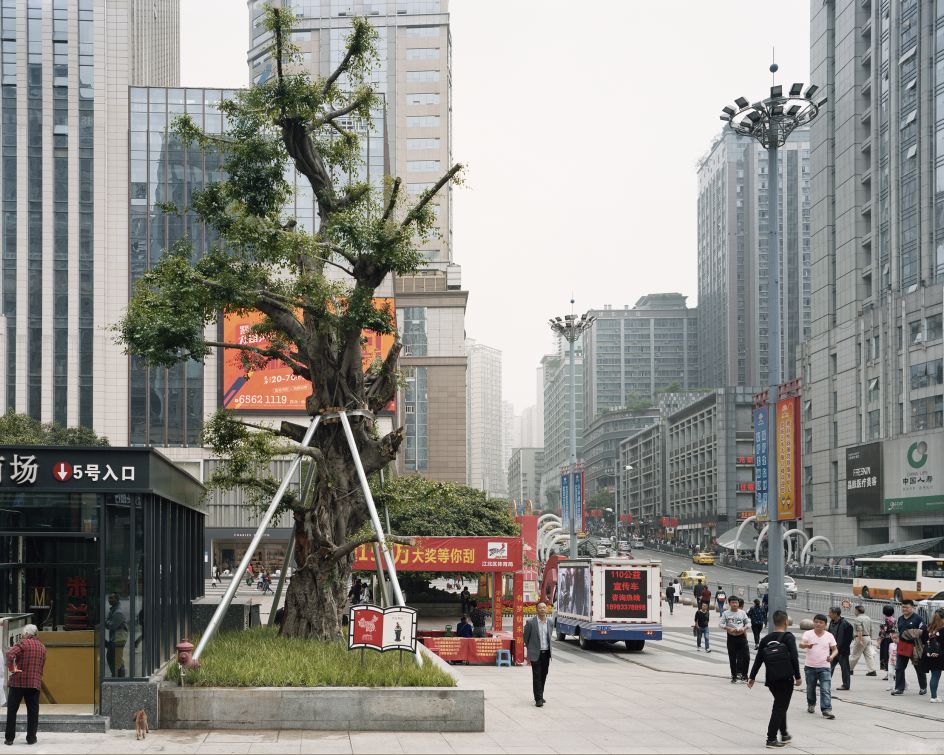
Guanyinqiao Shopping District, 2017 © Yan Wang Preston
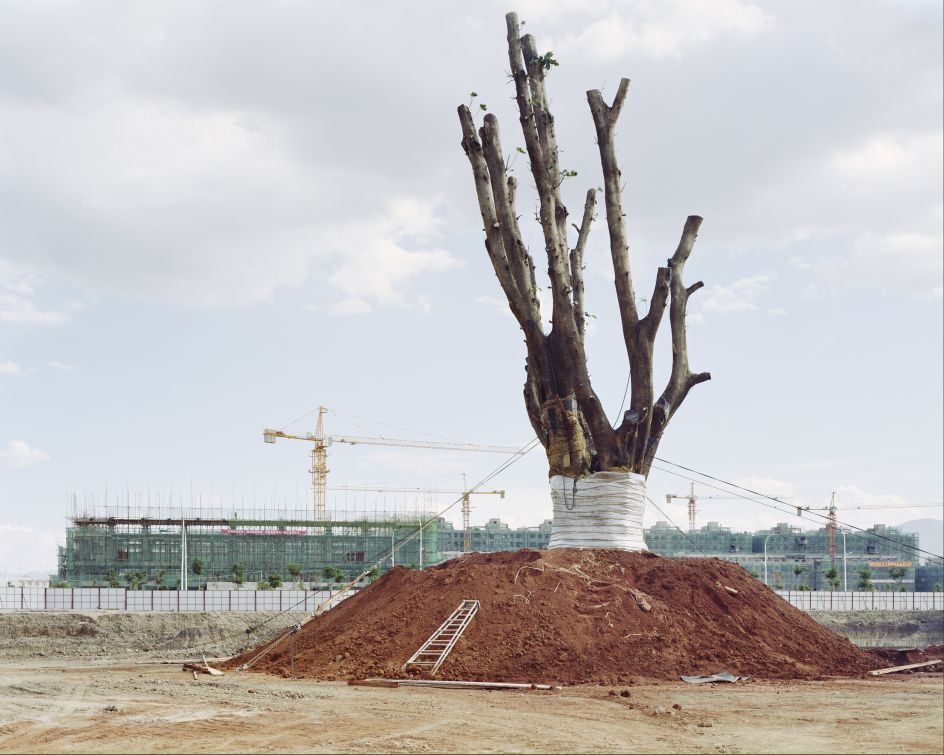
Frank (June 2013) © Yan Wang Preston
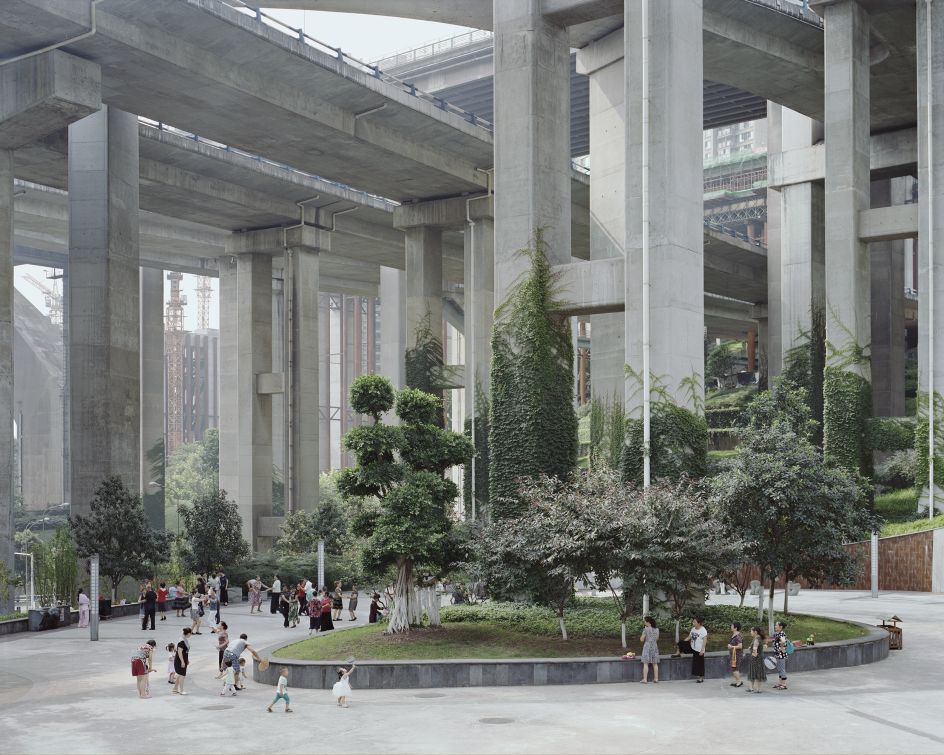
Egongyan Park, Chongqing, 2017 Egongyan Park, Chongqing, 2017 © Yan Wang Preston
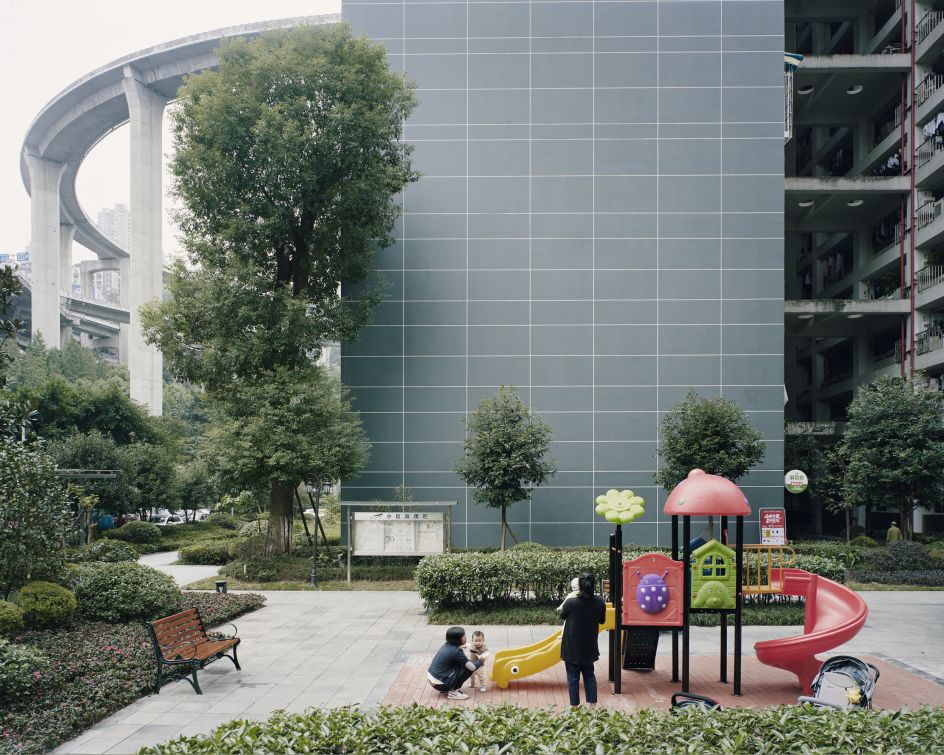
Courtyard of an apartment complex near Caiyuanba Bridge, Chongqing, 2017 © Yan Wang Preston
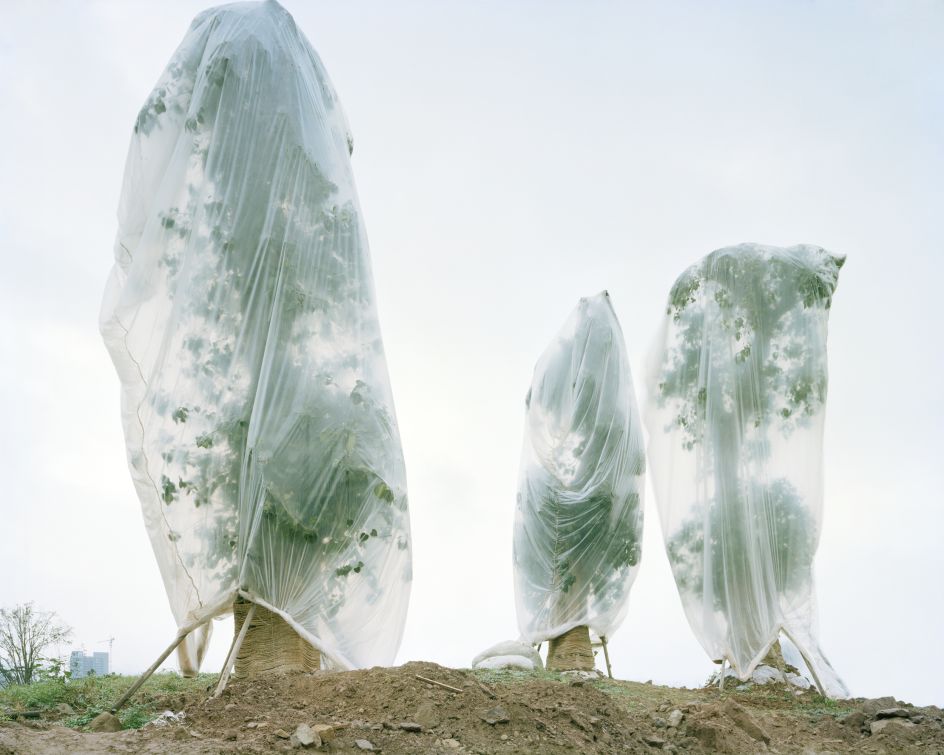
Central Park, University City, Chongqing, 2011 Central Park, University City, Chongqing, 2011 © Yan Wang Preston
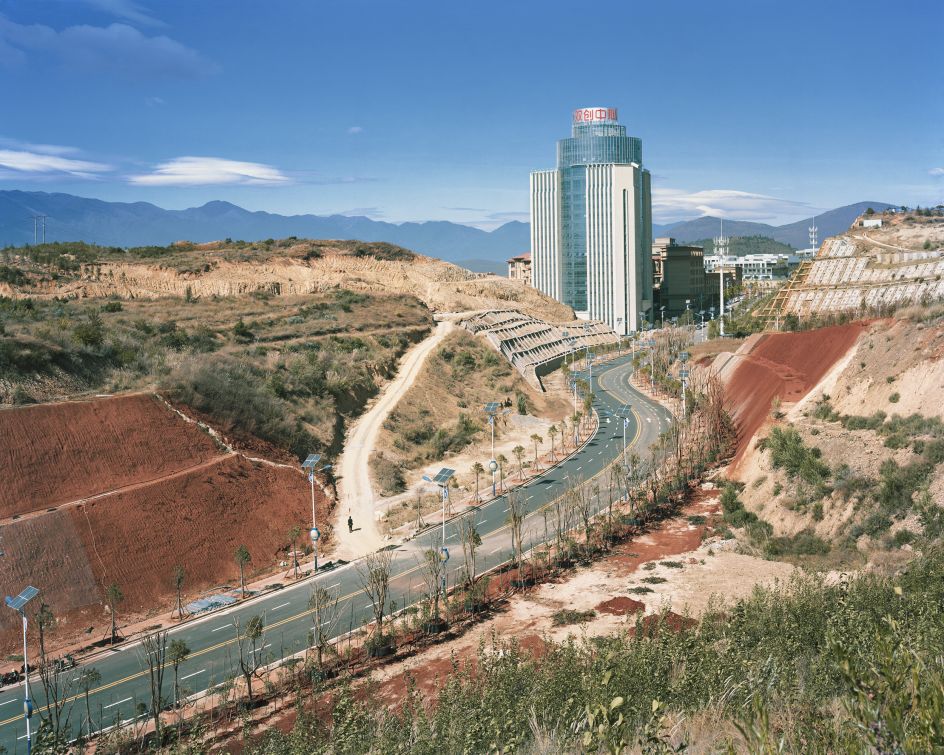
Haidong Development Zone, Dali, 2017 © Yan Wang Preston
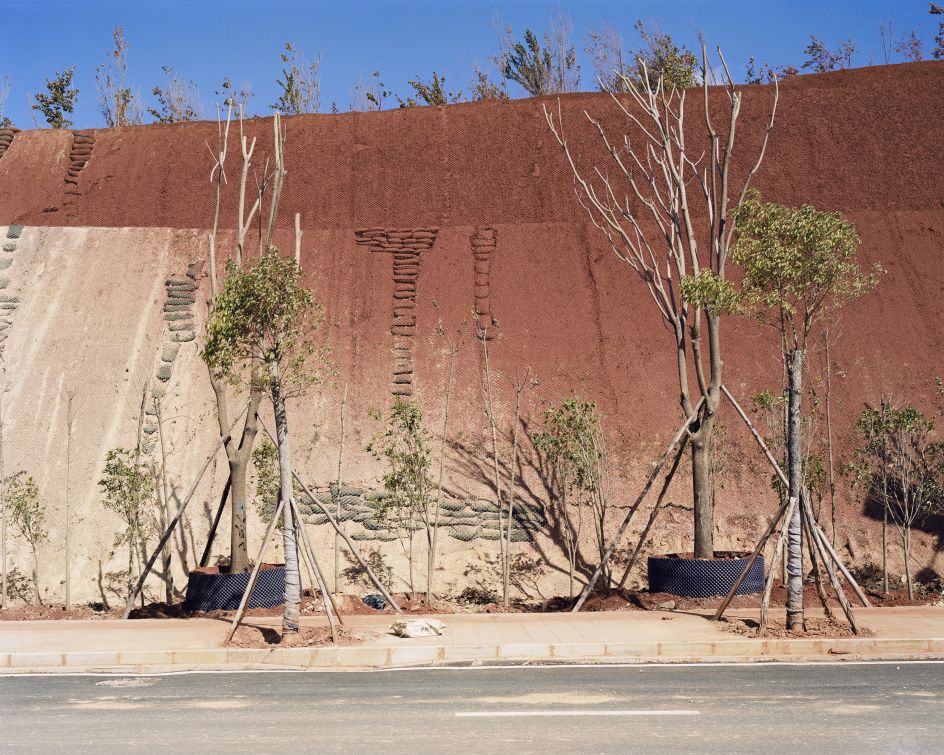
Roadside ecology recovery project, Dali, 2017. © Yan Wang Preston
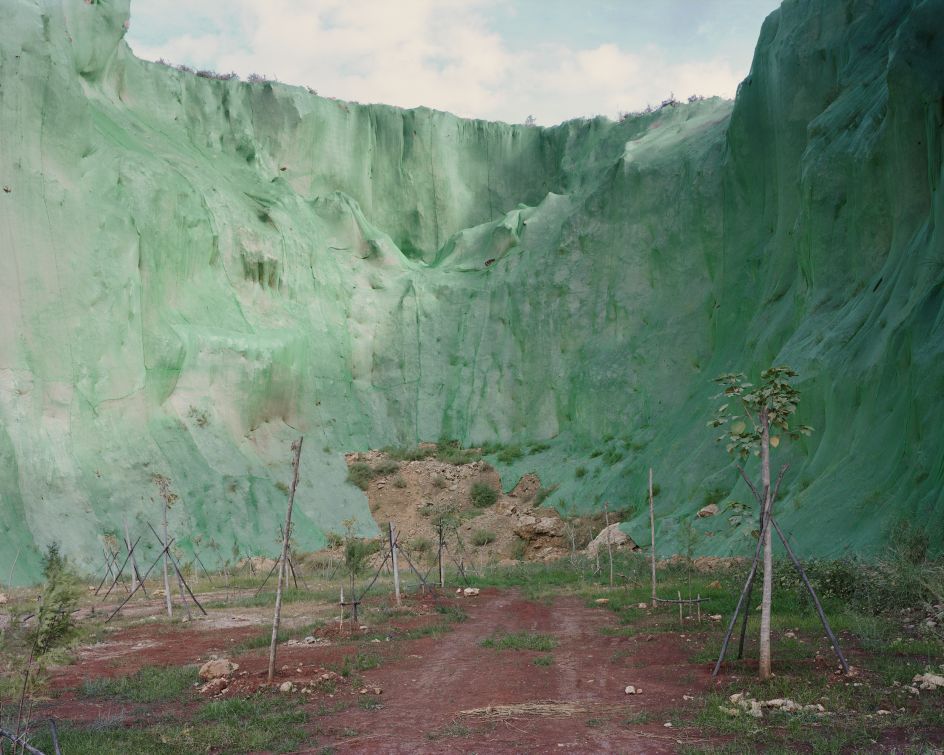
Puhejing Quarry Ecology Recovery Project, Dali,2017 © Yan Wang Preston




 by Tüpokompanii](https://www.creativeboom.com/upload/articles/58/58684538770fb5b428dc1882f7a732f153500153_732.jpg)


 using <a href="https://www.ohnotype.co/fonts/obviously" target="_blank">Obviously</a> by Oh No Type Co., Art Director, Brand & Creative—Spotify](https://www.creativeboom.com/upload/articles/6e/6ed31eddc26fa563f213fc76d6993dab9231ffe4_732.jpg)









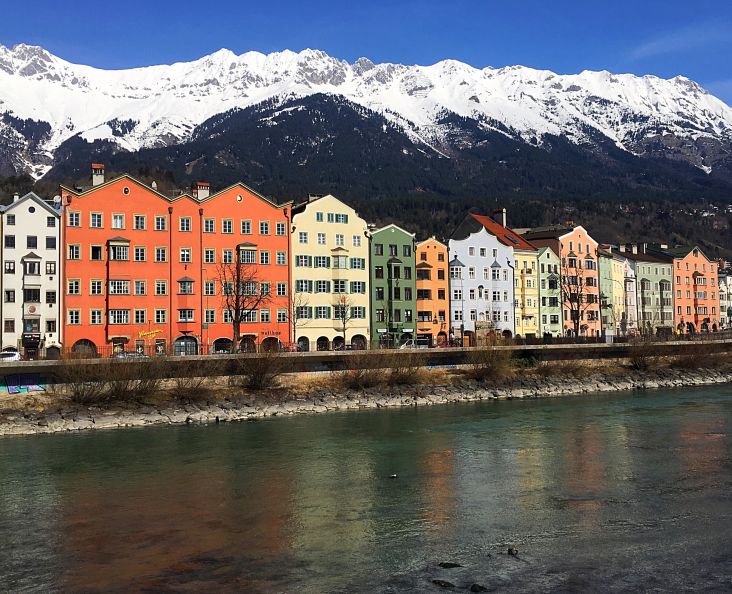

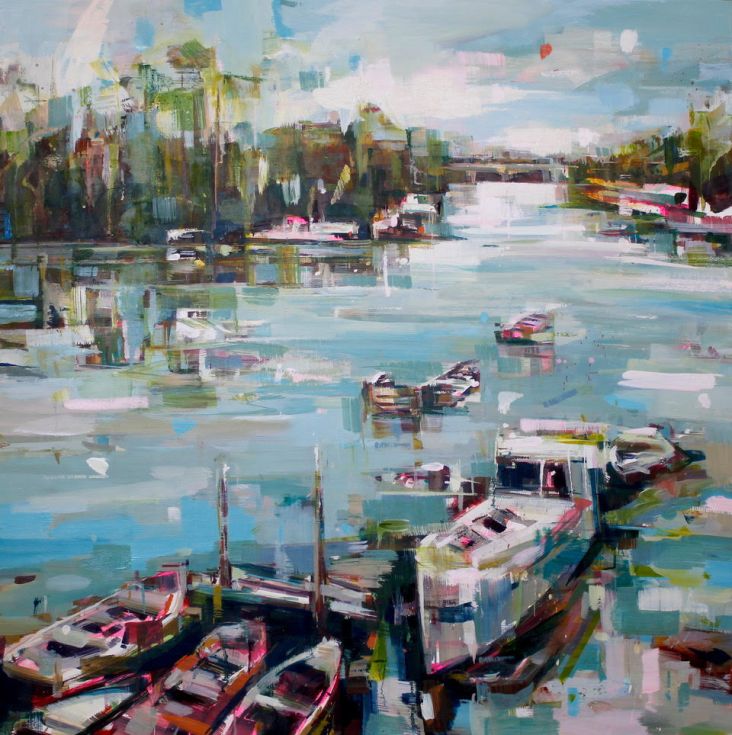


](https://www.creativeboom.com/upload/articles/c3/c38fc5408ca98ff97817ce90bc5e2e79eede8d43_732.jpg)
